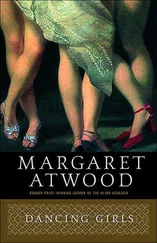“That isn’t any police ship,” said Bob.
“And it isn’t a transport, either,” declared Doc.
The tubes roared again, and over the eastern horizon the watchers saw the reddish glare of the explosion through the blanketing clouds.
Then the blast seemed to be almost over them and, far up, dimmed by the heavy cloud layer, they saw the angry belching of the rockets.
The ship circled to the west, turned back, stabbing away with short blasts.
“They’re coming in,” said Bob.
The ship dropped down, heading for the landing field. It was a beautiful ship, gleaming, silvery even in the dimness of approaching twilight.
“Never saw one like that before,” said Doc.
Only a few hundred feet up it rushed over the town, swung in for the field.
Suddenly a tongue of red flame leaped out from the bow of the ship, a flame that smashed against the radio station and wiped it out in a furnace blast of terrific heat.
A scorching wave of heat swept over Bob and Doc, heat that stifled them, seemed to sear their eyeballs. As if someone had suddenly opened the door of a white-hot fire box.
The ship swooped over the field, swung in a wide arc, heading back toward the town.
“Run,” Bob shouted to Doc. “Into the jungle! It’s the Genziks! They’re going to blast the town!”
But Doc did not run. Instead he caught Bob by the sleeve and pointed out on the field.
“Look at Angus,” he shouted. “What’s the damn fool up to now?”
Angus was running across the field, jerking out his flame pistol as he ran, straight toward the Venus Land ship.
“My Lord,” breathed Bob. “He’s going to fight them singlehanded.”
“Angus,” shouted Doc, “come back here. You can’t do that. You haven’t a chance. That ship’s not armed.”
But Angus apparently did not hear.
They saw him reach the ship and blast the door lock with a single shot from the pistol. With bare hands he wrenched the red-hot door open and disappeared within the ship.
“The old fool’s crazy mad,” said Doc. “Sandy was in the station and he’s dead now. Angus thought the world of that boy. Had a right to.”
The Genzik ship was coming back, bearing down on the town. It swept over the landing field and once again from its bow reached out the tongue of flame. A building went up in a puff of flashing fire. Another and another. As the ship zoomed up it left behind it a line of death and destruction, the entire east side of the street burned to the ground, a blackened ruin, with a few steel girders still glowing.
The street was alive with screaming humanity. Running, terrified human beings, some seeking shelter in the jungle, others running aimlessly, a few standing as if paralyzed, gazing up into the clouds.
From the landing field came a roar and the Venus Land ship shot upward with terrific speed to disappear in the heavy clouds.
The Genzik ship was circling, blasting away with short explosions, jockeying into position to strike at the row of buildings on the west side of the street.
“Maybe we better take to the jungle,” suggested Doc.
Bob nodded. “There won’t be much left of New Chicago after those fellows get through,” he said. “They’ll blast the town and then they’ll sweep the farms. They’ll turn this one little section into a desert. After they are through there won’t be any polka-dot weed or anything else left.”
“Angus is up there,” said Doc.
“But he won’t be able to do a thing. He has nothing to fight with,” protested Bob.
The Genzik ship was headed back toward the town. Through the clouds the two in the road could see its silvery bulk.
Swiftly Doc and Bob sprinted toward the jungle, but at its edge they halted and looked back as a series of deafening explosions seemed to shake the ground beneath their feet.
The Genzik ship was nearing the edge of the town, but above it, bearing down upon it, with tubes wide open, came a black ship—the Venus Land ship guided by the hand of an old dare-devil of space, a man old-timers said could turn a spaceship on a dime.
Like a flaming meteor the black ship speared downward, the world a-tremble with the roaring of its tubes.
Then the rocket blast was drowned out as the sky was lighted with a mushrooming blaze of white light and the very jungle rocked to the detonations of a violent explosion.
For a split second Bob saw the two ships locked together, surrounded by a corona of eye-searing blue-white flame as the fuel tanks exploded at the impact.
Trailing a column of fire, the ships dropped like a plummet and thudded into the jungle.
“By Heaven,” said Doc, “he did it. And he died the way he always wanted to, with his hands on space controls.”
“You know,” said Doc, “I’ve regained my confidence. I’m not going to let any of those high-powered New York medics high-hat me. I got what I’m going to say all figured out. I am going to say, ‘Gentlemen: I am very pleased to be here—’”
“Sure,” said Bob, “you got that much figured out, but what are you going to say after that?”
“Say,” said Doc, “I got that all figured out, too.”
“Listen, Doc,” warned Bob, “you pipe down. It’s time for us to get on board. There’s a rule against letting drunks aboard and if you don’t straighten up they’ll make you wait until the next ship.”
Together the two moved toward the huge ship that rested, ready for the takeoff, on the New Chicago field.
Bob, with one foot on the gangplank, turned when he heard his name shouted.
Across the field ran Zeke, his arms waving, the flame pistol holster flapping against his thigh.
“Wait a minute,” he shouted. “Wait a minute, Bob.”
Bob waited.
At the foot of the gangplank Zeke gripped his hand.
“Remember that skink I was telling you about?” he asked. “The one that took to living in my wood pile?”
Bob nodded.
“He dang near tantalized me to death for months,” Zeke said. “I laid for him, but I never could get him.”
“So I suppose you finally did get him,” Bob said.
“Hell, no,” said Zeke. “This morning he had pups!”
As far as I can tell from the author’s journals, Clifford Simak wrote this story in 1930, making it perhaps his very first. But since it was initially rejected by Astounding Science Fiction, and then by Wonder Stories, Miracle Science and Fantasy Stories, and Argosy All-Story Weekly, it was not the first of his stories to appear in print . (Wonder Stories ultimately accepted and published it in 1932 .)
As might be expected, “Mutiny on Mercury” is a crude first attempt at writing. It is also, as might be expected from its era, violent and displays elements clearly derivative of Edgar Rice Burroughs’s John Carter of Mars series. And there’s plenty of room for argument about its implications . …
—dww
Tom Clark stared at the sword he held in his hand. It should have been in a museum, for it was a rare specimen. The steel was bright and the hilt was an example of workmanship in which the ancients had excelled.
It had been centuries since a sword had been used in battle. But on this day, in the atmosphere plant which supplied oxygen to the great quartz dome on the twilight belt of the planet Mercury, a naked blade had leaped and flashed, a weapon again. It was no longer a relic doomed to be regarded with curiosity by a race that had forgotten its use.
The blade had belonged to Ben Jacobs, an heirloom which had been handed down, in the name of sentiment, from father to son, for many generations. Undoubtedly it was worth a small fortune, for the museums of the Earth held only a few such weapons. But now Ben Jacobs lay in a heap on the floor of the plant, struck down by a burly Selenite.
Читать дальше












